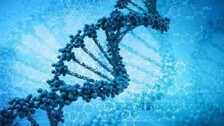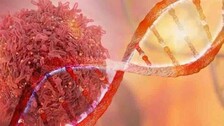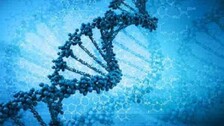

Bhubaneswar: Tobacco is the single most studied cause which leads to cancer and Odisha is the biggest example as it has the highest number of oral cancer patients in the world as per the new oral cancer detection method, said Biren Banerjee, MD of in-DNA Life Science Ptv Ltd, today. Discussing the topic ‘The Current scenario […]

Hong Kong: Do you frequently work in night shifts? Lack of proper sleep and night-time wakefulness can cause damage to the structure of the human DNA and lead to many diseases, including cancer and diabetes, as well as cardiovascular, neurological and pulmonary diseases, warns a study. The study, published in the Anesthesia academic journal, shows […]

London: The key to longevity can probably be found in the genes of your long-living uncles and aunts and not just parents, finds a study. Researchers, from Netherlands’ Leiden University and US’ University of Utah, showed that an individual’s chances of dying is reduced, even if the parents themselves did not live to be extremely […]

London: Think, that your ancestors were Roman Britons, Vikings or ancient Israelites? A new DNA tool can help you trace your similarity to these ancient people who once roamed the earth, say researchers. Currently the study of ancient DNA requires a lot of information to classify a skeleton to a population or find its biogeographical […]

New York: US researchers have identified a cluster of nose and throat bacteria that made their hosts less likely to get flu. The researchers from the University of Michigan (UM) looked at samples of nose and throat bacteria and used DNA sequencing to identify which bacteria were present. Analysing the bacterial composition across all samples, […]

New York: While adding DNA sequencing to the screening of newborns for hundreds of potential genetic diseases may help accurately identify babies who will develop a disease, it could be too early to recommend for the general public, say researchers. Every baby born in the US is given a routine blood test to screen for […]

New York: Researchers have identified cancer drugs that might be repurposed to treat infections caused by human papillomaviruses, or HPVs. HPV infections caused an estimated 266,000 deaths from cervical cancer worldwide in 2012, according to the World Health Organization. Routine screening by Pap smears or HPV DNA tests has reduced death rates in developed countries […]

Sydney: Researchers have found new evidence of advanced DNA regulation in an ancient marine organism that shows crucial mechanisms turning genes on and off may have originated much earlier than thought, a discovery that points to better understanding of genetic processes and disease treatment. The study, co-led by Australian researchers, analysed the DNA of “Amphioxus” […]

London: Environmentally-induced epigenetic changes, such as stress and adverse life experiences, to our genetic material — known as deoxyribonucelic acid (DNA) — may have a greater impact on our intelligence, a new study has found. According to the researchers, from Charité – Universitätsmedizin Berlin, modifications in the structure of a specific gene have a negative […]

London: Even small dosage of hormone intake can alter gene expression in a way that also affects the next generation, warns a study. In an experiment with pigs, the researchers demonstrated that the administration of even extremely low doses of an endocrine disruptor chemical (EDC) — an exogenous substance that has the same or similar […]

Washington: DNA evidence from a discarded restaurant napkin was used to identify a suspect in the slaying of a 12-year-old girl in 1986 in Seattle, Washington, police said. Gary Hartman, 66, was arrested on Wednesday and has been charged with murder in the first degree and rape in the first degree, Tacoma Police Chief Don […]

Sydney: With the aim to find the lost siblings of the Sun, now scattered across the sky, a team of astronomers has collected the “DNA” of more than 340,000 stars in the Milky Way. The “DNA” can help trace the ancestry of stars, showing astronomers how the universe went from having only hydrogen and helium — […]

Lucknow: Eminent scientist and ‘Father of DNA finger printing in India’, Lalji Singh has passed away after suffering a massive heart attack at the Varanasi airport, an official said. Singh was 70. The former Banaras Hindu University (BHU) Vice Chancellor was on his way to Delhi but complained of severe chest pain at the Lal […]

London: Neanderthal genes have contributed to human skin tone, hair colour, sleep patterns, mood, and even a person’s smoking status, find a study. The study, led by researchers from the Max Planck Institute for Evolutionary Anthropology in Germany, explored the “influence Neanderthal DNA might be having on ordinary variation in people today”, said Janet Kelso, […]

London: Early humans who lived around 34,000 years ago recognised the dangers of inbreeding and developed social and mating networks to avoid it, new research has found. The study, published in the journal Science, suggests that the early development of more complex mating systems may at least partly explain why anatomically modern humans thrived while […]

Copyright © 2024 - Odisha Television Limited All Rights Reserved.